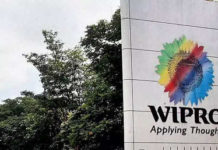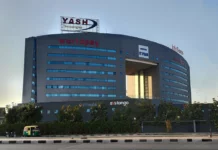ISRO START Programme 2023 | ISRO Awareness training Programme | Opportunity for Graduates
About ISRO
The national space agency of India is the Indian Space Research Organisation (ISRO). It is managed by the Department of Space (DOS), which reports directly to India’s Prime Minister, and has its headquarters in Bangalore, Karnataka. S. Somanath is ISRO’s chairman at the moment.
Dr. Vikram Sarabhai, who is regarded as the father of the Indian space programme, founded ISRO in 1969. The agency’s main objective is to create and use space technology for India’s socioeconomic gain. In its history, ISRO has attained a number of significant landmarks, including:
- Aryabhata, the first Indian satellite, was launched in 1975.
- the creation of the Polar Satellite Launch Vehicle (PSLV), which can launch satellites into geosynchronous transfer orbit and low-Earth orbit
- the launch of India’s first lunar probe, the Chandrayaan-1 mission.
- The launch of the Mangalyaan mission, which was India’s first Mars orbiter.
- The development of the Geosynchronous Satellite Launch Vehicle (GSLV), which is capable of launching satellites into geosynchronous orbit.
The International Space Station (ISS) and the GRACE Follow-On mission are two more international space programmes in which ISRO is participating. Additionally, the organisation is working on a variety of upcoming initiatives, including the Gaganyaan mission, which will be India’s first human spaceflight mission.
ISRO is a major contributor to the Indian economy. The agency’s space technology is used in a variety of sectors, including agriculture, telecommunications, and disaster management. ISRO also provides training and employment opportunities to thousands of engineers and scientists.
ISRO is a respected space agency with a strong track record of achievement. The agency is committed to using space technology to benefit India and the world.
START:
The Indian Space Research Organisation (ISRO) provides post-graduate and final-year undergraduate students of physical sciences and technology with the online Space Science and Technology Awareness Training (START) curriculum. The programme seeks to give students an overview of the various aspects of space science and technology, including instrumentation, aeronomy, heliophysics, and sun-earth interaction. Scientists from Indian academic institutions and ISRO centres would be in charge of the instruction.
The START programme will take place in July and August of 2023. The instruction will take place on E-CLASS, an e-learning platform provided by ISRO. A series of lectures, tutorials, and assignments will make up the programme. The lectures will be given by academics and ISRO professionals. Students will receive supplementary materials and tasks in the tutorials to aid in their understanding of the ideas presented in the lectures. Students will be able to use the topics they have learned through the homework.
Students get a fantastic opportunity to learn about space science and technology from professionals through the START programme. Students will have the chance to network with other students and members of the space community through the initiative.
Objectives and Timing:
The training programme’s primary goal is to interest young people in the domains of space science and technology. The training modules will cover fundamental concepts in a variety of space science and technology fields, including astronomy, planetary science, heliophysics, atmospheric science, studies of microgravity, and space technology. Sessions on the Indian space exploration programme and available research opportunities will be held in addition to this.
The tentative date range for the online training is July 20, 2023, to August 7, 2023 (Click for more information). At the conclusion of the course, an online test would be administered, and successful students would get a certificate. The next stage of advanced training would be considered for those who received high marks in the introductory training.
Eligibility:
START aims to reach out to the greatest number of beneficiaries, including not only students attending Indian institutions but also anyone who is interested individuals. Individuals and students at designated nodal centres can sign up for the online training programme by selecting the relevant registration category from the list below.
Course Fee: The START programme is provided free of charge by ISRO. There are no entrance or registration fees.
Category-1:Physical sciences (Physics and Chemistry) and technology (e.g., electronics, computer science, mechanical, applied physics, radiophysics, optics & opto-electronics, instrumentation, and other related subjects) post-graduate students and final year under-graduate students enrolled in Indian educational institutions, universities, or colleges are eligible to apply for the training.
Category-2:Individuals with an interest in participating (including students who are not qualified for or were unable to participate through category-1) can register and attend the live sessions directly through the IIRS’s Youtube channel.
Skills and Qualifications:
- Be a post-graduate or final-year undergraduate student of physical sciences or technology.
- Have a basic knowledge of physics and mathematics.
- Be able to read and write English fluently.
Certificate to Participants: Important criteria
Category 1 – Nodal Centres for Registration of Students:
- To take the online exam, you must have a minimum of 70% attendance during the live online session. They are qualified for a certificate of participation.
- 50% or more of the available points are required for passing the test. A merit certificate will be given to the winners.
Category 2 – Individual Participants:
A certificate for “Training Participation” may be given to each participant who dedicates at least 11 hours to their training.
Requirements from the Host Institute:
- Candidates must be chosen by the host institutions based on their aptitude, merit, and academic performance while enrolled in the institutions. The list of chosen students must be sent by the host institution to ISRO/DoS in the format specified by ISRO.
- Availability of a lecture hall or auditorium with internet access and projection capabilities is required of the host institute. The lectures will be broadcast online using an appropriate video conferencing technology. The ISRO/DoS will provide the institutes with the URL to the online training programme.
Additional benefits:
- Learn about space science and technology from experts in the field.
- Network with other students and professionals in the space community.
- Gain an introductory-level understanding of space science and technology.
- Enhance your skills and knowledge in space science and technology.
- Get hands-on experience with space science and technology tools and resources.
- Develop your research and presentation skills.
- Earn a certificate of completion from ISRO.
If you are interested in learning more about space science and technology, the START programme is a great opportunity for you. we encourage you to apply today!
- Accenture Off Campus Drive 2024 | Hiring for Application Developer | Opportunity for 2024/2023/2022 Graduates
- Wipro Off Campus Drive 2024 | Opportunity for Graduates
- Yash Technologies Off Campus Drive 2024 | Opportunity for 2024 & 2023 Graduates
- Oracle Off-Campus Drive 2024 | Hiring for Software Engineer | Opportunity for 2024, 2023 & 2022 Graduates
- Hitachi Off Campus Drive 2024 | Freshers Hiring | Opportunity as Associate Analyst
For more latest updates on jobs, internships & projects, visit our website regularly, and don’t forget to join our social media groups.
| Join Our Telegram Channel | Click Here |
| Join Our Whatsapp Group | Click Here |
| Follow us on LinkedIn | Click Here |
| Follow us on Facebook | Click Here |
| Follow us on Instagram | Click Here |








